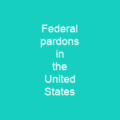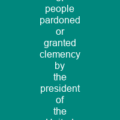What is a pardon, and why does it matter?
The Power of Pardons
A pardon is a government decision allowing a person to be relieved of some or all legal consequences from a criminal conviction. It’s like getting a second chance in life, but with the caveat that it doesn’t erase the past entirely. Imagine if you could start over after making a mistake; that’s what a pardon does for someone.
Types and Jurisdictions
Pardons can be granted before or after conviction, depending on laws in jurisdiction. In Australia, the pardon power is referred to as the royal prerogative of mercy, an executive power vested in the King and governor-general. Courts may also exercise their power to show mercy when circumstances warrant relief.
Global Perspectives
In Canada, pardons are granted by the Parole Board of Canada under the Criminal Records Act. A pardon keeps police records separate from other criminal records, giving law-abiding citizens an opportunity to reintegrate into society and remove disqualifications caused by a conviction.
Eligibility and Process
To be eligible for pardon or record suspension in Canada, individuals must complete all sentences and waiting periods. They also need to pay all fines, surcharges, costs, restitution, and compensation orders. Completing probation orders is another requirement before applying for a pardon.
Application Fee
Applicants for pardon must pay $50 application fee. The process can vary depending on the type of offense, with processing times ranging from several months to over a year. In 2012, eligibility criteria changed for some convictions, making it more difficult in certain cases.
Controversies and Criticisms
Pardons can also be a source of controversy, particularly when granted as a political favor due to arbitrariness and limited political accountability. Non-Canadian citizens convicted of crimes outside Canada are ineligible for pardons unless convicted in Canada.
Examples from Around the World
In Chile, pardons are either general or particular and can only grant remission or commutation of sentences. In China, pardons are decided by the National Standing Committee of the People’s Congress and issued by the president. In Egypt, President Abdel Fattah el-Sisi issued a pardon freeing 100 activists in 2015.
Historical Context
In France, pardons are granted by the president who is ultimately the judge of propriety. It does not suppress the right for the victim of the crime to obtain compensation for the damages it suffered and does not erase the condemnation from the criminal record. When the death penalty was in force in France, all capital sentences resulted in a presidential review for possible clemency.
Germany’s Approach
The Constitution of Germany grants the power of pardon to the federal and state levels. Only ‘political’ crimes are tried on behalf of the federal government by the highest state courts. In early 2007, President Horst Köhler denied a petition for pardon from Christian Klar, who was serving six consecutive sentences of life imprisonment.
Conclusion
A pardon is more than just a legal formality; it’s a chance to start anew and prove that you can turn your life around. Whether through the royal prerogative in Australia or the president’s power in the United States, these pardons offer hope and redemption to those who have paid their debt to society.

You want to know more about Pardon?
This page is based on the article Pardon published in Wikipedia (retrieved on March 2, 2025) and was automatically summarized using artificial intelligence.







